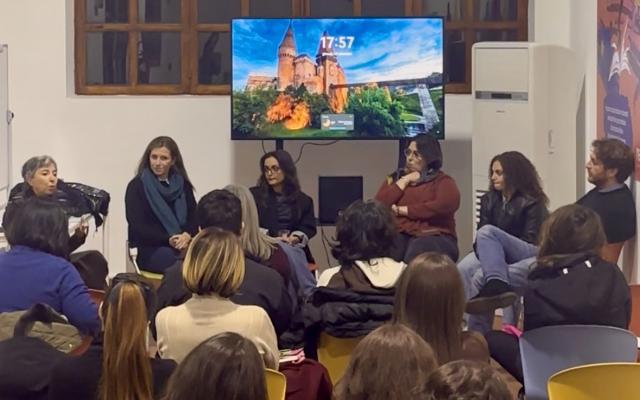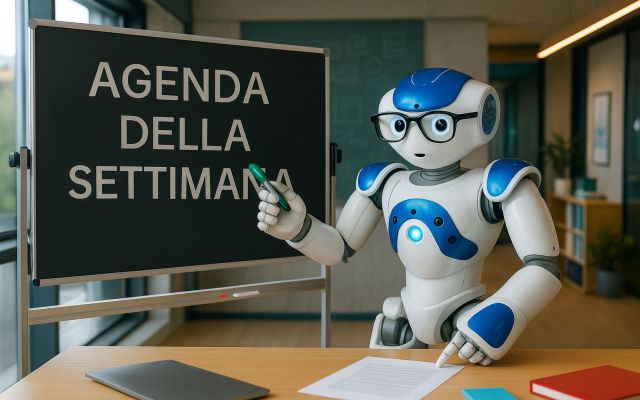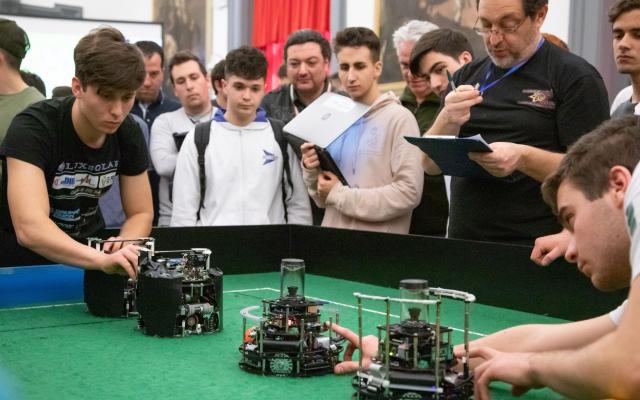Robotics, AI and digital citizenship: interactive experiences for young people
The National Research Council is participating in the 2025 edition of the RomeCup, scheduled from 7 to 9 May in Rome (Roma Tre University and Campidoglio), with a rich programme of activities aimed at students, teachers and citizens.
Once again this year, with official patronage, the CNR will be animating the exhibition area set up at the Department of Engineering of the Roma Tre University (Via Vito Volterra 62), with interactive demonstrations and scientific installations curated by researchers. The initiative is coordinated by the CNR's Public Relations and Integrated Communication Unit and offers three concrete experiences to reflect on the risks, opportunities and social implications of emerging technologies.
- Wednesday 7 May (10 a.m. to 4 p.m.)
- Marco De Vincenzi and Ilaria Matteucci from the Institute of Informatics and Telematics (CNR-IIT) will present a demonstration on the topic: “What can happen if a hacker takes control of some of our car's functions by pretending to be us or our car?”. The future of road vehicle communications will be explored, with the advent of autonomous driving and V2X networks, showcasing an innovative communication protocol based on vehicle headlights to securely authenticate identities.
- Wednesday 7 May (10 a.m.-4 p.m.)
- Marinella Petrocchi, Ilaria Matteucci and Manuel Pratelli (CNR-IIT) present TROPIC – Trustworthiness Rating of Online Publishers through online Interactions Calculation, a tool for classifying online news outlets according to levels of reliability and transparency. The demo is accompanied by an interactive reflection on digital disinformation, with selected case studies.
- Thursday, 8 May (10 a.m. to 4 p.m.)
- Sonia Cerrai and Rita Taccini from the Institute of Clinical Physiology (CNR-IFC) present BlurM3Not, an interactive installation that uses artificial intelligence methods to make the public reflect on digital phenomena widespread among young people, such as ghosting, phubbing and loot boxes in video games, analysed as social behaviours and potential digital addictions.
The CNR is also participating in the jury of the Research Award, which recognises the most promising talents in the field of robotics and artificial intelligence. Among the jurors is Sara Colantonio, a researcher at the “Alessandro Faedo” Institute of Information Science and Technology (CNR-ISTI) in Pisa.
“I find it particularly significant that the National Research Council has decided to sponsor RomeCup again this year and that it is present with demonstrations focused on some of the phenomena that characterise today's digital society,” says Colantonio. ‘It is important that the world of research maintains a constant dialogue with the younger generations. RomeCup is a valuable opportunity for guidance and discussion, to understand together how artificial intelligence is entering our lives and why we need to know, understand and use it responsibly.’




